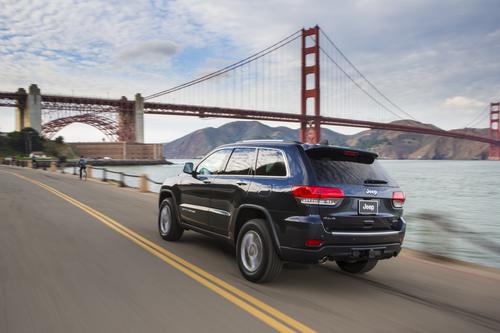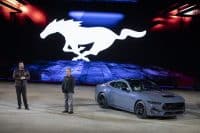The dominant theory about Fiat’s buyout of a UAW health care trust that gives it 100% ownership in Chrysler is that the Italian car group has made huge hedge in the United States. Fiat gets the 41.46% of Chrysler its does not already own at a price that values the entire American company at $10.5 billion. Without any manufacturers that can be used as direct comparisons in terms of value, the only ones close are General Motors Co. (NYSE: GM) and Ford Motor Co. (NYSE: F). Based on this analysis, Fiat paid too much.
GM has a market capitalization of $57 billion. It has $20 billion in cash and will make about $4 billion this year. Based on a crude valuation analysis, GM’s enterprise value is about $40 billion, or about four times Chrysler’s. Chrysler should make $1.6 billion this year, but virtually all of that is from its U.S. sales base. If the calculations were so simple, Fiat’s deal would seem attractive.
But financial statements tell very little about the future value of either company. Chrysler has 11.5% of the American car and light truck market. GM has 17.9%. However, what Chrysler lacks, almost completely, are large footholds in Europe and China.
China is considered the future of the global car market. It may be 50% larger than the United States in two or three years. At its current growth rate, that could be double by the end of the decade. By that time, China will be a fantastic part of the earnings of is market leaders, which at this point are GM and Volkswagen. There is no reason to believe, based on its current presence, that Chrysler will have any significant share of the Chinese market at all.
The next part of the value argument turns to Europe, where GM has lost billions of dollars over the past decade. Chrysler has almost no exposure there. Its parent Fiat does, which may fate the Italian company to a gloomy future, at least in the short term. However, that assumes the European market will never recover. That assumption is almost certainly not true.
GM has lost money in Europe for so long that its market cap likely will jump if it can prove its operations in the region can break even. GM has started what probably will be a successful restructuring of its presence there in a push to drive down costs. And Europe is slowing emerging from its deep recession. Car sales already have begun to improve in some countries. This trend will continue. GM may not make a great deal of money between now and the end of the decade in Europe, but it will not lose more. As GM’s management has argued, it cannot afford to abandon what will continue to be one of the largest markets in the world — the third leg on the stool that includes China and America.
Chrysler has done particularly well in the United States and will continue to do so. But it is blocked out of markets that could offer global auto manufacturers their best future opportunities.
Take Charge of Your Retirement In Just A Few Minutes (Sponsor)
Retirement planning doesn’t have to feel overwhelming. The key is finding expert guidance—and SmartAsset’s simple quiz makes it easier than ever for you to connect with a vetted financial advisor.
Here’s how it works:
- Answer a Few Simple Questions. Tell us a bit about your goals and preferences—it only takes a few minutes!
- Get Matched with Vetted Advisors Our smart tool matches you with up to three pre-screened, vetted advisors who serve your area and are held to a fiduciary standard to act in your best interests. Click here to begin
- Choose Your Fit Review their profiles, schedule an introductory call (or meet in person), and select the advisor who feel is right for you.
Why wait? Start building the retirement you’ve always dreamed of. Click here to get started today!
Thank you for reading! Have some feedback for us?
Contact the 24/7 Wall St. editorial team.




